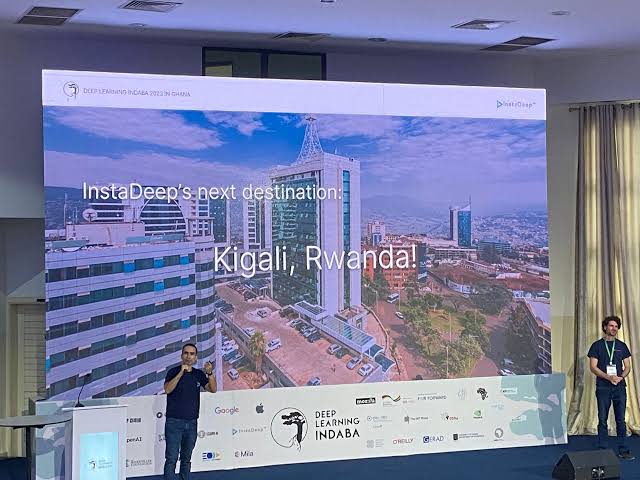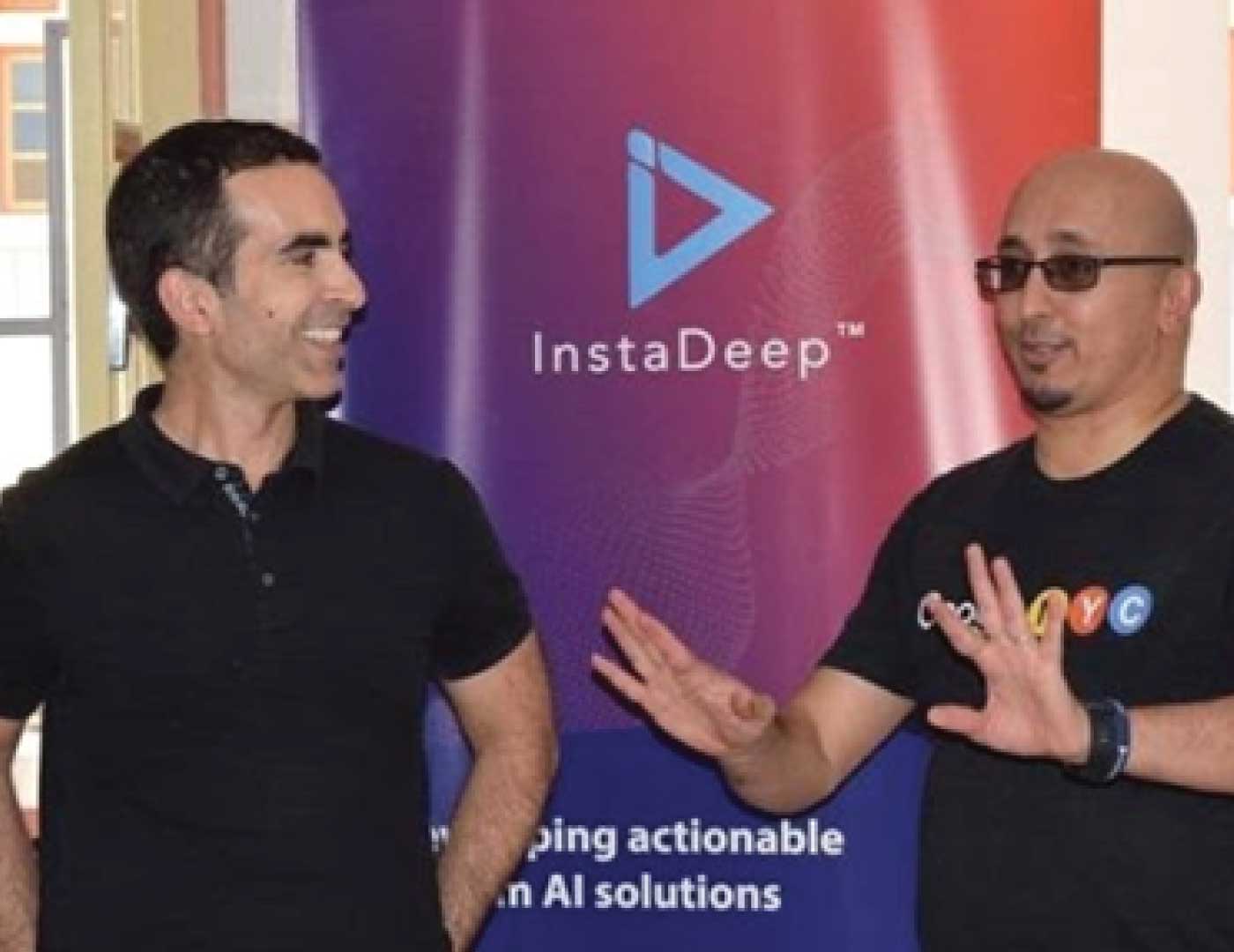African-founded artificial intelligence (AI) startup – InstaDeep has closed a $100 million Series B funding round to advance its high-performance AI tech, hire more elite talent and accelerate the launch of disruptive AI products across multiple industries – including biotech, logistics, transportation and electronics manufacturing while also expanding its global presence into the United States.
About InstaDeep
InstaDeep was founded in 2014 by Karim Beguir and Zohra Slim and is today an EMEA leader in decision-making AI products for the Enterprise. With expertise in both machine intelligence research and concrete business deployments, the company provide a competitive advantage to its customers, including helping companies to improve the crucial parts of their operations by harnessing AI technologies such as Reinforcement Learning, a type of machine learning that helps design effective optimization strategies for an array of challenges, from therapeutics development to railway operations and more. InstaDeep is on a mission to accelerate the transition to an AI-first world that benefits everyone.
The company headquarter was moved from Tunis in North Africa to London and had offices in Paris, Tunis, Lagos, Dubai and Cape Town to aid its global expansion. CB Insights recently selected the company as one of the 100 most promising AI startups globally for the second year running.

History and Impacts of AI
As you may care to know, artificial intelligence (AI) is a wide-ranging branch of computer science concerned with building smart machines capable of performing tasks that typically require human intelligence. The fundamental goal of AI is to get machines to simulate human intelligence.
The phrase artificial intelligence (AI) was first coined at the “Dartmouth Summer Research Project on Artificial Intelligence” by John McCarthy in 1956 and is widely considered to be the birth of artificial intelligence as we know it today. But the journey to understand if machines can truly think began much before that. In the 1940s, in the book “The Organization of Behavior”, – Donald Hebb proposes the theory that neural pathways are created from experiences and that connections between neurons become stronger the more frequently they’re used. Hebbian learning continues to be an important model in AI today.
There’s no denying that artificial intelligence has dominated the technological landscape. The science fiction of yesterday quickly becomes a reality. AI has already altered the way we think and interact with each other every day that we almost do not realize it. From the invention of voice search, chatbots, gaming and digital assistants to robots, automated homes, self-driving cars, virtual assistance etc., AI is making life and work easier for humanity and helping businesses serve their customers better.
Accenture researched the impact of AI in 12 developed countries. The study revealed that it could double economic growth rates by 2035. AI will enable people to use their time efficiently, which will increase their productivity by 40%. This is especially true for global IT economics.
Statista study on artificial intelligence in 2017 shows that – 84% of business organizations will adopt AI because it gives them a competitive advantage over their rivals.
A recent survey carried out by CNBC also reported that 81% of executives worldwide say AI will play a prominent and critical role in how their businesses operate this year.
Companies are phasing from the first generation of AI, which deals with pattern, text and image recognition, to decision-making AI, which helps them make timely decisions in complex spaces.
Apparently, we are shifting towards an AI-powered world, if not already.
InstaDeep Funding
In May 2019, InstaDeep had raised US$7 million in Series A funding to power the development of its scalable product platform aimed at empowering enterprises with decision-making using AI and now closing a $100 million in Series B financing led by Alpha Intelligence Capital and CDIB. Other investors in the round include BioNTech, Chimera Abu Dhabi, Deutsche Bahn’s DB Digital Ventures, Google, G42 and Synergie.
There seems to be no limitation to the real-world problems InstaDeep is looking to further solve for enterprises with its decision-making AI systems having closed this Series B funding.
“This funding round is a tremendous vote of confidence from our partners BioNTech, Google and Deutsche Bahn after working closely with us on innovative, high-impact AI initiatives,” said Karim Beguir, co-founder and CEO of InstaDeep. “And we are very excited to get the support of Alpha Intelligence Capital, Chimera, Synergie and G42 as we see wide-ranging opportunities to deploy our AI products to tackle complex real-world problems.”
With the new funding, the African-founded AI company plans to accelerate the launch of disruptive AI products across biotech, logistics, transportation and electronics manufacturing. Advancing its computing infrastructure, expanding into the U.S. and hiring more talent is also in its use of funds strategy.
InstaDeep Collaborations in Accelerating Disruptive AI
InstaDeep formed a multi-year strategic collaboration with BioNTech to launch two years ago. The mandate was to deploy the latest advances in artificial intelligence (AI) and machine learning (ML) in developing novel immunotherapies.
One of its notable global achievements came in late November 2021 when it created an early warning system (EWS) for detecting high-risk SARS-CoV-2 variants. Per a report by FT, this EWS identified more than 90% of World Health Organization (WHO) designated variants on average two months ahead of time and detected Omicron three days before it was classified as a variant of concern by the WHO.
InstaDeep also collaborates with Google’s AI research divisions to create an early detection system for desert locust outbreaks in Africa; it has worked on AI initiatives and has published joint research with DeepMind and Google Research.
One common theme with these collaborations is that all three organizations are investors in InstaDeep’s new financing round.
“With them being our partners and customers, they’ve been able to see firsthand what InstaDeep platform and the team can achieve,” said Karim Beguir, CEO InstaDeep. “So we see it as a significant milestone and also sort of a vote of confidence in our capabilities and products that they are investing having worked very closely with us on difficult problems for years.”
The company is also working on a moonshot product to automate railway scheduling with Deutsche Bahn, the largest rail operator and infrastructure owner in Europe.
“InstaDeep has demonstrated unique capabilities in solving very complex railway problems using groundbreaking AI-first technologies. The team’s skills and thought leadership in this space have paved the way for the adoption of cutting-edge AI technologies in the railway domain. We are happy to join the investment round and enable a stronger partnership with Deutsche Bahn to jointly harness the potential of applying AI,” said Boris Kuehn, managing director, DB Digital Ventures.
InstaDeep – Changing the Status Quo in Africa
It is mind-blowing to see how InstaDeep has established itself as a global company using AI to solve complex problems and collaborating with DeepMind and Google in its eight years journey. What is more surprising is Beguir mentioning that they started the company with just two laptops, $2,000 and a lot of enthusiasm, and today, InstaDeep currently has over 170 employees. More than 130 are in AI research, engineering, ML and DevOps departments. At the same time, half of the team is based in its African offices: South Africa, Nigeria and Tunisia, with headquarters in London.
When InstaDeep launched, Africa wasn’t in the picture detailing AI’s contribution to global economic growth. And while that picture hasn’t changed so much, InstaDeep is one of the few African companies, including South Africa’s Aerobotics and hearX Group, trying to change that status quo and give Africa a say in shaping the future of AI.
“We’ve managed to build a culture of high standards and prove that the talents in Africa are capable of being competitive, working and collaborating with the very best,” said Beguir. “That’s the story we’ve been able to nurture. And today, we’re proud to have a team which is now over multiple countries in Europe, Middle East and Africa, but has some very passionate African AI researchers, engineers making a tangible contribution.”
If Beguir and the InstaDeep team has taught us anything, location doesn’t pose a barrier in making a global impact, and no resources may be too little to start with. This is even more true for African founders operating in the tech ecosystem.
“It is possible to create a globally competitive company with strong African roots, but also well integrated into the world working on genuine deep-tech innovation, and doing things that haven’t been done before,” says Karim Beguir, InstaDeep CEO.




